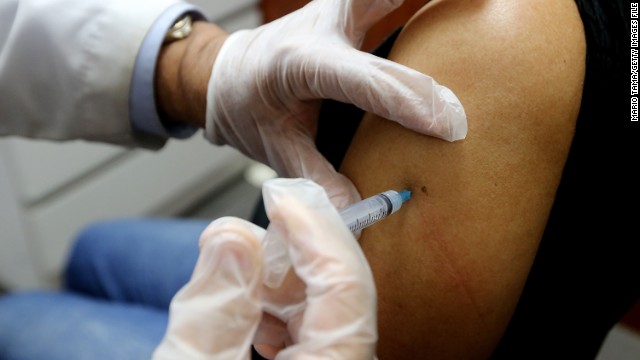CDC, the Advisory Committee on Immunization Practices (ACIP), and the Healthcare Infection Control Practices Advisory Committee (HICPAC) endorse that all U.S. health care workers get vaccinated annually against influenza including physicians, nurses, nursing assistants, therapists, technicians, emergency medical service personnel, dental personnel, pharmacists, laboratory personnel, autopsy personnel, and students and trainees.
Also included in the list of healthcare workers recommended to get vaccinated are contractual staff not employed by the health-care facility, and persons such as clerical, dietary, housekeeping, laundry, security, maintenance, administrative, billing, and volunteers not directly involved in patient care but potentially exposed to infectious agents that can be transmitted to and from health care workers and patients.
According to CDC’s review of related published literature, influenza vaccination of health care personnel can enhance patient safety.
In 2014–15, flu vaccination coverage among health care personnel was 64.3%, similar to early season coverage during the 2013–14 season (62.9%). The coverage is highest among pharmacists (86.7%), nurse practitioners/physician assistants (85.8%), physicians (82.2%), nurses (81.4%), and other clinical professionals (72.0%), while lowest among administrative and non-clinical support staff (59.1%) and assistants or aides (46.6%).
Reasons to get vaccinated
Reasons to address the question why healthcare workers need to be vaccinated have been provided such as:
- Influenza (the flu) can be a serious disease that can lead to hospitalization and sometimes even death. Anyone can get very sick from the flu, including people who are otherwise healthy.
- You can get the flu from patients and coworkers who are sick with the flu.
- If you get the flu, you can spread it to others even if you don’t feel sick.
- By getting vaccinated, you help protect yourself, your family at home, and your patients.
Going against annual vaccinations
However, though yearly flue vaccination has been mandated and considered as a condition for employment to hospitals, there are still nurses who are willing to sacrifice their jobs and careers to avoid the annual flu shot, specifically across the US and Canada.
One reason nurses are against these mandatory shots is the harm brought about flu vaccines. According to one nurse, flu vaccine is only 59 percent effective and carries with it serious health risks, which are not disclosed to those receiving it.
As of November 2013, the Federal Adverse Events Reporting System has received 93,000 reports of reactions, hospitalizations, injuries and deaths following flu vaccinations. These include 1,080 deaths, 8,888 hospitalizations and 1,811 related disabilities.
A recent meta-analysis study published by the CDC reveals that flu vaccinations among healthcare workers offer no evidence of protection to the patients under their care. However, the CDC still recommends flu shots for healthcare workers since according to them “It’s the best intervention we currently have, so we need to keep using it while working toward a better flu vaccine.”
Though mandatory influenza vaccination campaign successfully increased vaccination rates, it is still met with resistance by members of the healthcare profession.Mandatory flu vaccination programs do not only produce cynicism and opposition among employees, but they also become a hindrance to providing vaccination education to employees, and may even raise ethical and legal questions about the personal employment rights of employees.
Sources:
- https://healthimpactnews.com/2014/boston-nurses-speak-out-against-mandatory-flu-shots/
- https://www.cdc.gov/flu/healthcareworkers.htm
- https://healthimpactnews.com/2013/cdc-study-mandatory-flu-vaccinations-of-health-care-workers-offer-no-protection-to-patients/
- https://www.nationalnursesunited.org/press/entry/largest-national-nurses-union-opposes-mandatory-flu-vaccination







